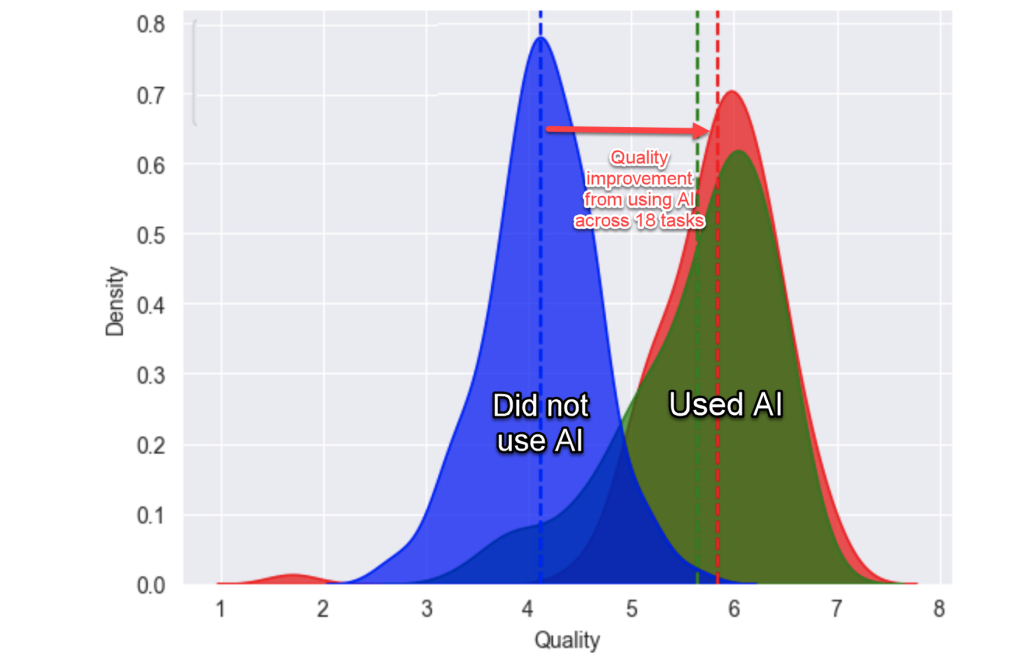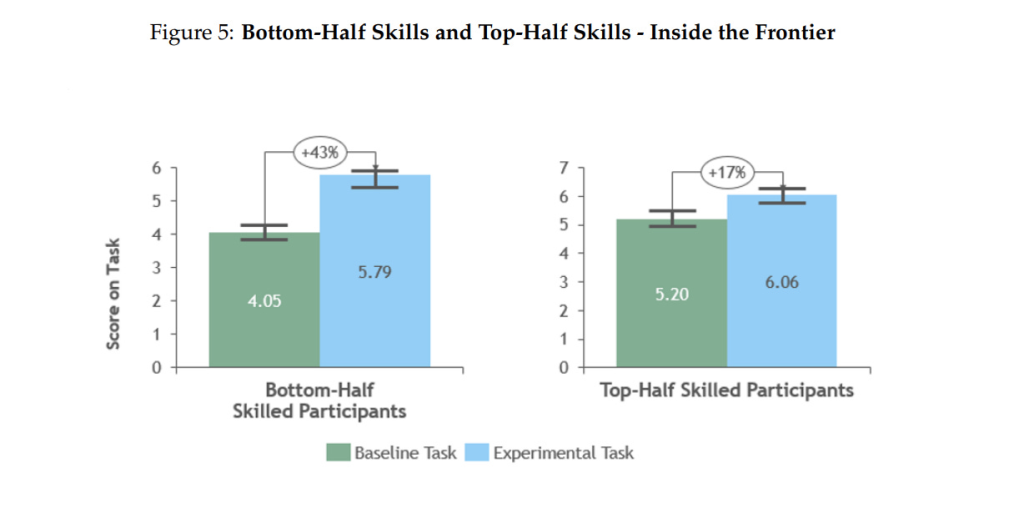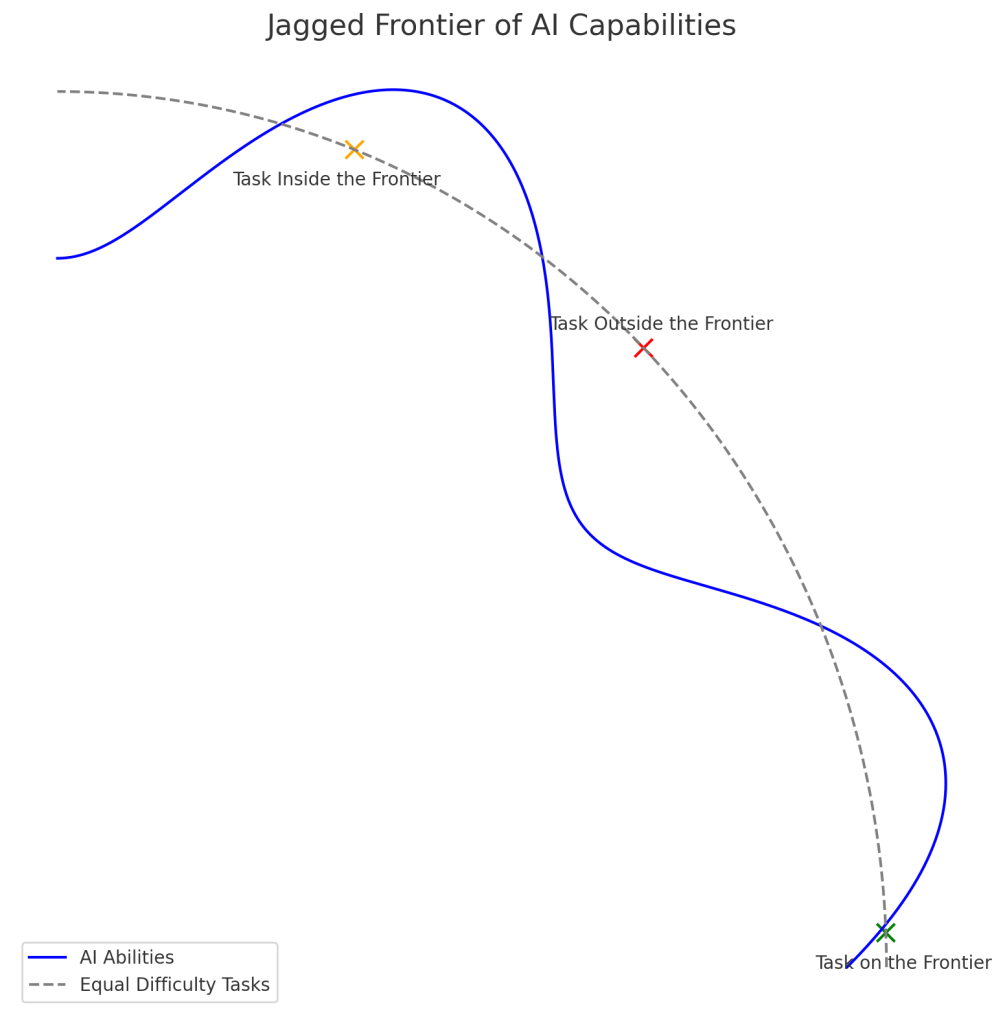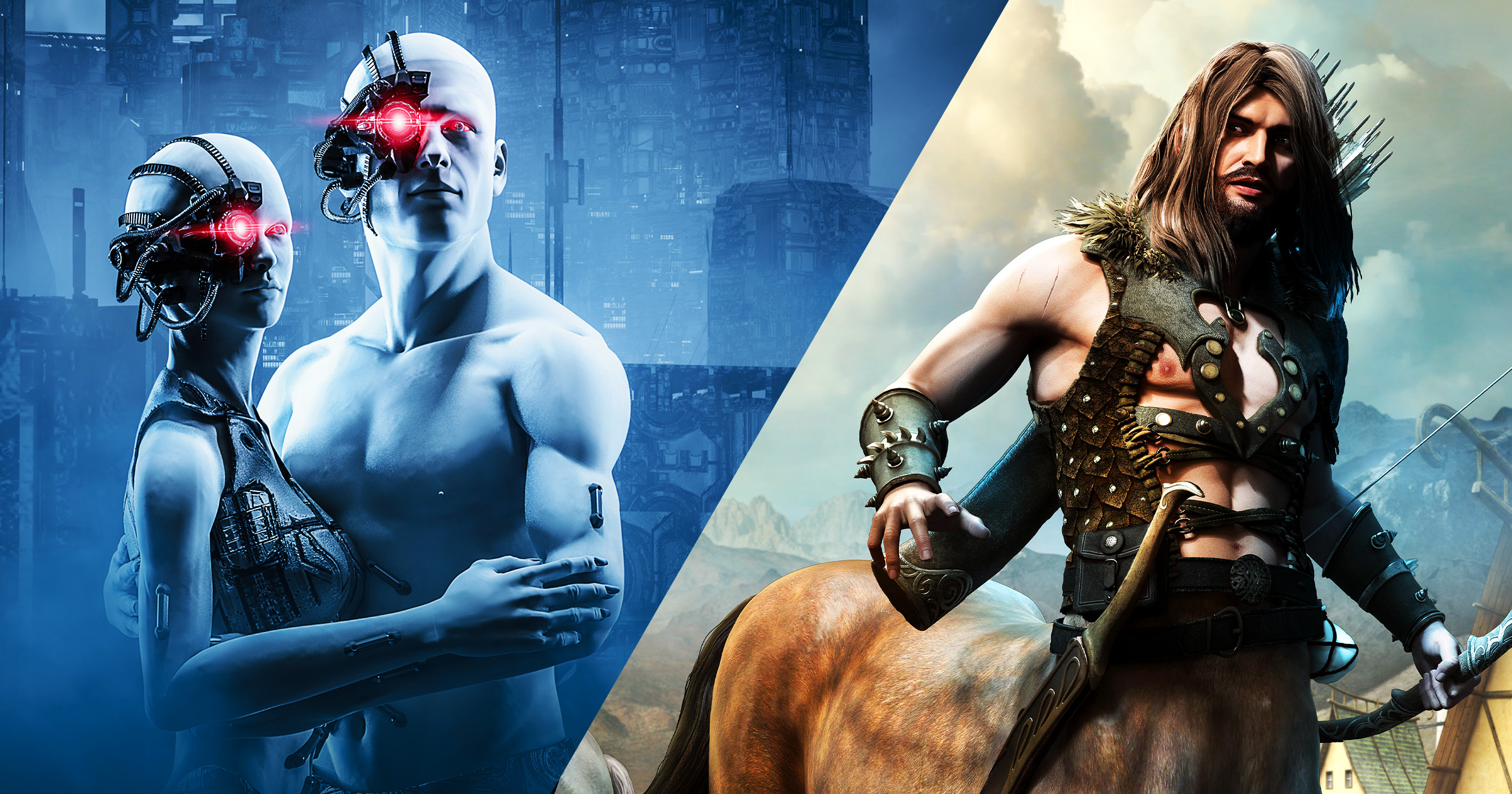You might be sceptical or scared of artificial intelligence (AI), but the reality is: it’s here, and it isn’t going away, no matter how much some people would want it to.
It is going to take over many jobs and reduce headcount in companies, whether by replacing people outright or by making us more productive, thus reducing the demand for human workforce across the board.
In fact, erosion of employment is already visible — for example, among freelance professions, where the impact of AI was quickest to hit, due to the transactional nature of the job and lack of legal protections or employment contracts.
“Most strikingly, the study found that freelancers who previously had the highest earnings and completed the most jobs were no less likely to see their employment and earnings decline than other workers. If anything, they had worse outcomes. In other words, being more skilled was no shield against loss of work or earnings.”
Fortunately, while AI taketh, it also giveth. If you’re smart enough to take advantage of it in the right way, you may become a more, not less, valued worker.
Cyborgs and Centaurs
A recent experiment by Harvard researchers and Boston Consulting Group (BCG), turned BCG offices into an AI proving ground, showing a considerable improvement in the quality of the work completed using the new, smart tools.

Moreover, AI tends to boost the performance of weaker employees (here by 43 per cent) more than the best ones (an improvement of just 17 per cent), bringing the capabilities of different team members closer to each other, thereby eliminating the existence of very weak links.
Thanks to AI, fewer people are indispensable.

However, both this and other studies the researchers participated in have also identified certain weaknesses which, in extreme cases, may hurt rather than help performance.
Over-reliance on AI for certain tasks made people less competent in the long run, as they became more apathetic, given that the machine was performing most of the heavy-lifting. They simply “fell asleep at the wheel”.
Elsewhere, it was found that, in certain nuanced tasks, utilising AI was detrimental to the outcome. In essence, human collaboration with a smart chatbot produced worse results than a human on his own did.
In other words, to be a highly productive employee, you need to understand when to use AI and when not to, as well as to constantly control its performance, maintaining your own proficiency at work.
Drawing from these findings, the researchers have described two behavioural strategies of the best-performing participants, labelling them either as Cyborgs or Centaurs.
Centaurs — known from Greek mythology as half-men, half-horses — divide their work between AI-assisted and non-assisted tasks. They use a clear distinction between the two, emphasising the strength of either approach in their assignments.
In the experiment at BCG, the Centaur employees performed the tasks they felt the strongest at themselves and then delegated the ones they weren’t as certain of to AI. Centaurs know their strengths and weaknesses, and use the intelligent machine to help them fill the gaps they are so keenly aware of.
Cyborgs, on the other hand, as the name suggests, are blended human-AI machines. They continuously utilise AI to complete parts of a task that they feel it’s better suited to and then mould it to their will afterwards.
For instance, they could ask ChatGPT to generate a few paragraphs of text, which they would then edit and polish themselves.
Few tasks are handed off to AI completely, as Cyborgs prefer to have control over the machine-generated output, continuously correcting it for the most desirable outcome.
Notably, both approaches require considerable proficiency at the task at hand, to know when and when not to use AI for help — or when to discard its output.
For Cyborgs, it is a continuous process. While Centaurs feel comfortable completing large tasks on their own, they also find value in using AI as mere assistants, particularly for jobs they would generally prefer to offload to someone else.
This is what the authors of the experiment dubbed the “jagged frontier” of AI — an observation that AI tools allow us to extend our capabilities beyond existing boundaries in some areas, while dragging us behind in others.

Whether you’re a Centaur or Cyborg, you’re ahead of the pack, able to take full advantage of AI’s superior capabilities, while avoiding over-reliance on it when it is not prudent to do so.
It is hard not to notice, however, that, at the end of the day, human competencies are what’s necessary to make that difference.
Knowing when to lean on AI and when not to, is what makes the best employees — and might soon be a prerequisite to keeping your job. Fortunately, then, even with the birth of intelligent machines, our future is still in our hands.
Featured Image Credit: Depositphotos








